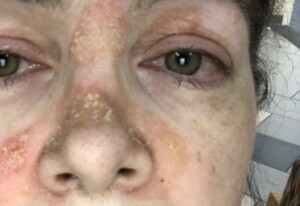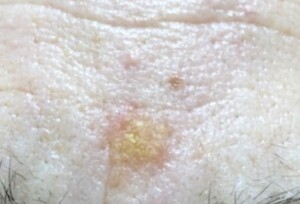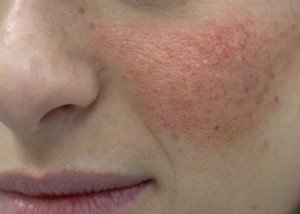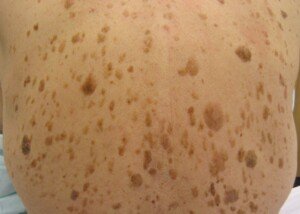
Some of your flares of seborrheic dermatitis can be made worse by stress, but stress can actually cause this condition as well.
“Seborrheic dermatitis is a very common skin disease that causes a red, oily, flaking skin rash where there are sebaceous (oil-producing) glands,” says Tejas Patel, MD, a board certified dermatologist with Reforma Dermatology in NYC.
“There have been numerous reports of stressful events precipitating flare-ups of seborrheic dermatitis.”
One such study (Misery et al) appears in Annales De Dermatologie Et De Venereologie (Nov. 2007) about stress and seborrheic dermatitis.
The study was done in two phases. In the first phase a questionnaire was given to 82 participants who had seborrheic dermatitis.
One of the questions concerned that of experiencing stress during the week or month before a flare of seborrheic dermatitis.
The second phase was a questionnaire with the same questions (minus medical history), given four months after the first.
Study Results
• The participants identified stress as the key triggering factor for seborrheic dermatitis.
• The potential for subjectivity in the answers was controlled for, because the questions were designed to detect anxiety and stress levels without the participants knowing.
• In 11 percent of the patients the psychological effects of SD was pronounced; and it was moderate in 20 percent, mild in 35 percent and pretty much nil in 25 percent. Nine percent gave no opinion.
• Participants whose SD involved their face were more depressed.
Conclusion
The paper states, “This study confirms that seborrheic dermatitis is often preceded by a stressful event and that stress tends to suggest a poor prognosis.”
The paper continues, “This is the first study to show possible link between stressful life events and episodes of seborrheic dermatitis.”
Finally, the paper says that in people with facial involvement, depression was more common and anxiety was an aggravating factor.

A patch of seborrheic dermatitis on the forehead.
Considerations
There needs to be a study in which people with seborrheic dermatitis document flare-ups (date, duration) and also record stressful events.
Certainly, many people with SD do this all the time, jotting down dates of flares, how long they last, and anything unusually stressful going on in their life.
Sometimes you don’t even need to document anything down to know that there’s a solid connection.
For example, I didn’t need to document my prolonged flare-up of seborrheic dermatitis at the time I was pursuing a prophylactic double mastectomy (after learning my sister had breast cancer) to know that there was a definite connection.
The entire process was dragged out (e.g., having to wait a few weeks between the results of the risk-assessment counseling and meeting with the surgeon to discuss the procedure, and then another three and a half weeks’ wait for the surgery date). All that time I was flaring.
Very soon after the surgery the flare went away. Coincidence? I think not.
And the flare was the worst it had ever been. My mother asked me more than once, “What’s wrong with your nose?”
People who suffer a lot of stress and anxiety and who have seborrheic dermatitis know, without any formal studies, that there’s a strong link between stress/anxiety and flare-ups of this condition.
“Cold and dry weather also cause a flare-up of seborrheic dermatitis,” adds Dr. Patel.






































